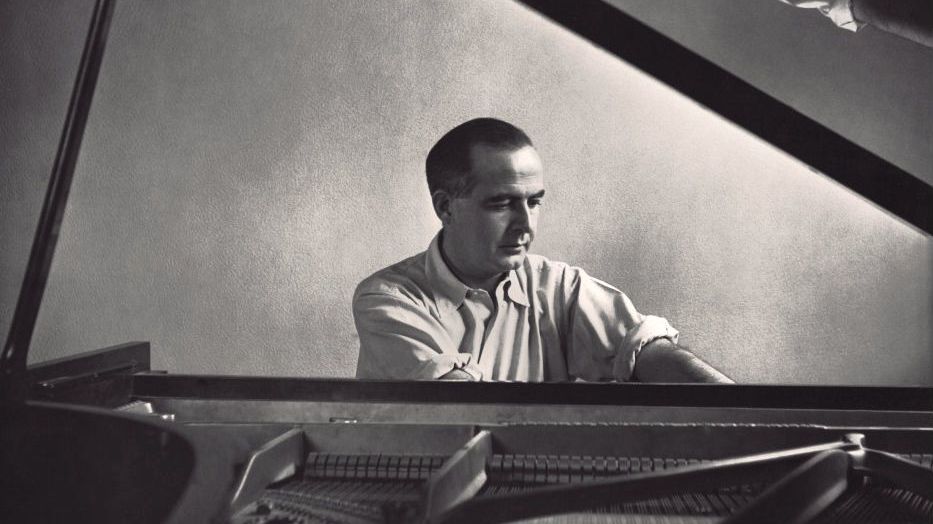Samuel Barber’s Vanessa premiered at the Metropolitan Opera on this date in 1958.
Originally set in four acts, the opera’s dark story and libretto were created by Gian Carlo Menotti. Its atmosphere may have been inspired by Seven Gothic Tales, a collection of short stories by the Danish author Karen Blixen (who wrote under the pen name, Isak Dinesen). Here is a summery of the synopsis:
Vanessa, a grand middle-aged lady, has been living in isolation with her mother, and niece Erika, in a remote northern country house. She awaits the return, after 20 years’ absence, of her former lover Anatol. But Anatol is dead, and the young man who appears is his son and spitting image, also called Anatol and a bounder. Vanessa is shocked but fascinated and infatuated. Young Anatol secretly seduces and impregnates Erika; distrusting him, she turns down his offer of marriage. Instead he agrees to marry Vanessa. Erika is appalled and aborts the baby. Vanessa, uncomprehending, leaves for Paris with Anatol. Erika is left waiting.
Tim Ashley writes, “The opera’s world is one of secrets, lies and evasions, and beneath its elegant surface lurk intimations of deep trauma. The subject is the bitter conflict between emotional idealism and sexual reality.”
The Met premiere, conducted by Dimitri Mitropoulos with set designs by Cecil Beaton, featured Eleanor Steber (Vanessa), Rosalind Elias (Erika), Nicolai Gedda (Anatol), and Regina Resnik (Vanessa’s mother, the Baroness). Sena Jurinac, originally cast in the title role, dropped out six weeks before opening night. Vanessa, Samuel Barber’s first opera, was a popular success, initially, winning the Pulitzer Prize for Music in 1958. Mitropoulos was quoted as saying, “At last, an American grand opera!” But soon, the tide of public opinion turned. Critics derided the work as retrograde and “un-American.” Its rich, Neo-Romantic lines were out of step with the cerebral, avant-garde serialism of the time. In recent years, this operatic masterwork has enjoyed a revival.
Erika’s aria, “Must the Winter Come so Soon?” from Act I, Scene I, draws us into a sound world which is simultaneously haunting, gloomy, lamenting, and beautiful. Here is Frederica von Stade’s performance:
In the Act I aria, “Do not utter a word,” Vanessa addresses the man she believes to be her lover from twenty years earlier. The orchestra lines leading into the aria suggest an almost violent psychological turmoil. Then, the atmosphere transitions to a ghostly, spine chilling suspense. Brief moments of soaring heroism are cut off by snaking chromatic lines. Here is Leontyne Price’s 1965 recording:
https://youtu.be/d-yAW1gpP2o
In the Act II aria, “Outside this house,” Anatol tells Erika that he cannot promise her eternal love, but instead friendship and adventure. Here is the 1958 Metropolitan Opera recording:
In the final act, following Erika’s tragic miscarriage, we hear this haunting orchestral Intermezzo. It’s as if Barber could only deliver the opera’s dramatic resolution by moving briefly away from the stage and allowing the orchestral voices to have their say, unimpeded. The celestial final bars float upwards, offering both reassurance and nagging anxiety:
The final act ends with a hypnotic Quintet (“To leave, to break”):
Recordings
- Barber: Vanessa, “Must the Winter Come so Soon?,” Frederica von Stade Amazon
- Barber: Vanessa, “Do not utter a word,” Leontyne Price, Francesco Molinari-Pradelli, RCA Italiana Opera Orchestra Amazon
- Barber: Vanessa (1958 recording), Eleanor Steber, Nicolai Gedda, Rosalind Elias, Giorgio Tozzi, Regina Resnik, George Cehanovsky, Robert Nagy, Dimitri Mitropoulos, Metropolitan Opera Orchestra and Chorus Amazon
- Barber: Vanessa, Thomas Schippers, Columbia Symphony Orchestra Amazon

